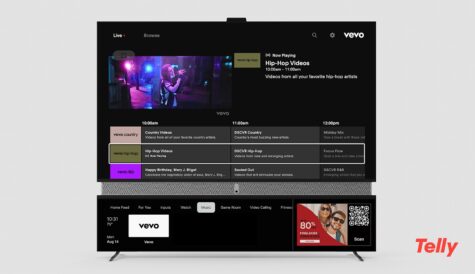5G not likely to threaten cable, say technologists
 5G technology is unlikely to threaten cable and other fixed-line operators in the medium term, while a compelling sales story for fixed-mobile convergence is something that cable and other network operators are still trying to define, according to a panel of cable technologists at this year’s Cable Congress in Brussels.
5G technology is unlikely to threaten cable and other fixed-line operators in the medium term, while a compelling sales story for fixed-mobile convergence is something that cable and other network operators are still trying to define, according to a panel of cable technologists at this year’s Cable Congress in Brussels.
Cable CTOs agreed that 5G is unlikely to emerge as a substitute for fixed access any time soon as it will face issues related to coverage and reliability.
“You have to be within a football pitch’s distance,” said Matt Beal, group technology director at Vodafone, speaking on the panel. “Vodafone has been consolidating with cable operators…to get the least expensive, most reliable bit rate out there. These [fixed-line] technologies that already exist will have an advantage for some time to come.”
Beal also said that 5G is in danger of being “massively overhyped” in relation to customers’ actual experience. While pre-standards solutions, largely as a replacement technology for fixed network solutions, will be available soon, 5G will not really be available to the wider mobile market until 2019, he said. “When we get there remains to be seen a bit,” he said.
While the potential of 5G remains something of an unknown quantity, cable and other fixed-line operators have also yet to find a truly compelling sales story for fixed-mobile convergence beyond the price value of a quad-play bundle, said Beal. He said that the industry had still to “strike the magic” in terms of finding a compelling convergence play.
Also speaking on the panel, Colin Buechner, managing director, access networks, Liberty Global, said that his company was trialling a “5G like technology” with Cable & Wireless, its Caribbean unit. However, he said, “the economics are still somewhat challenging”. He said that cable was in any case well placed to offer backhaul capability for 5G, meaning development of the technology did present an opportunity.
Buechner said that Liberty’s JV with Vodafone in The Netherlands gave it advantages such as nationwide marketign as well as synergies on the technology side. However, he said, it was too early to tell.
Luc Noiseux, SVP and CTO/CSO of Canadian cable operator Cogeco, also taking part in the debate, said that 5G is still a best-effort network and that plays in favour of cable. However, he said, 5G could be ,used as a replacement for fibre over short distances.
Noiseux said that the Canadian market is seeing potential for quad-play, but that this is evolving slowly. “Today, we don’t see any great urgency to it,” he said.
Thomas Helbo, CTO of Com Hem, which does not provide a mobile offering, said that his company remained focused on the fixed market for now. Helbo said that “convergence is not really happening in Sweden.” Incumbent telco Telia, which is capable of offering converged services, is not really pushing this, he said.
“We are not pushing it. We don’t see the need so far. We want to be capable if it becomes a problem and we would need an MVNO agreement or something like that. But the main competition for us right now is in the SDU [single dwelling unit] market and providing fixed services to that market.”
Helbo said that 5G services would face a challenge in addressing densely populated areas of multiple dwelling units, which is Com Hem’s core market for its fixed-line services.
“I think our footprint is mostly focused on MDUs [multiple dwelling units] and the density of that is a challenge [for 5G]. I think we as a fixed network will have an advantage there,” he said. “However, 5G will bring more competition to the industry and we need to stay ahead of that.”



